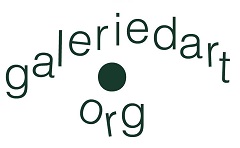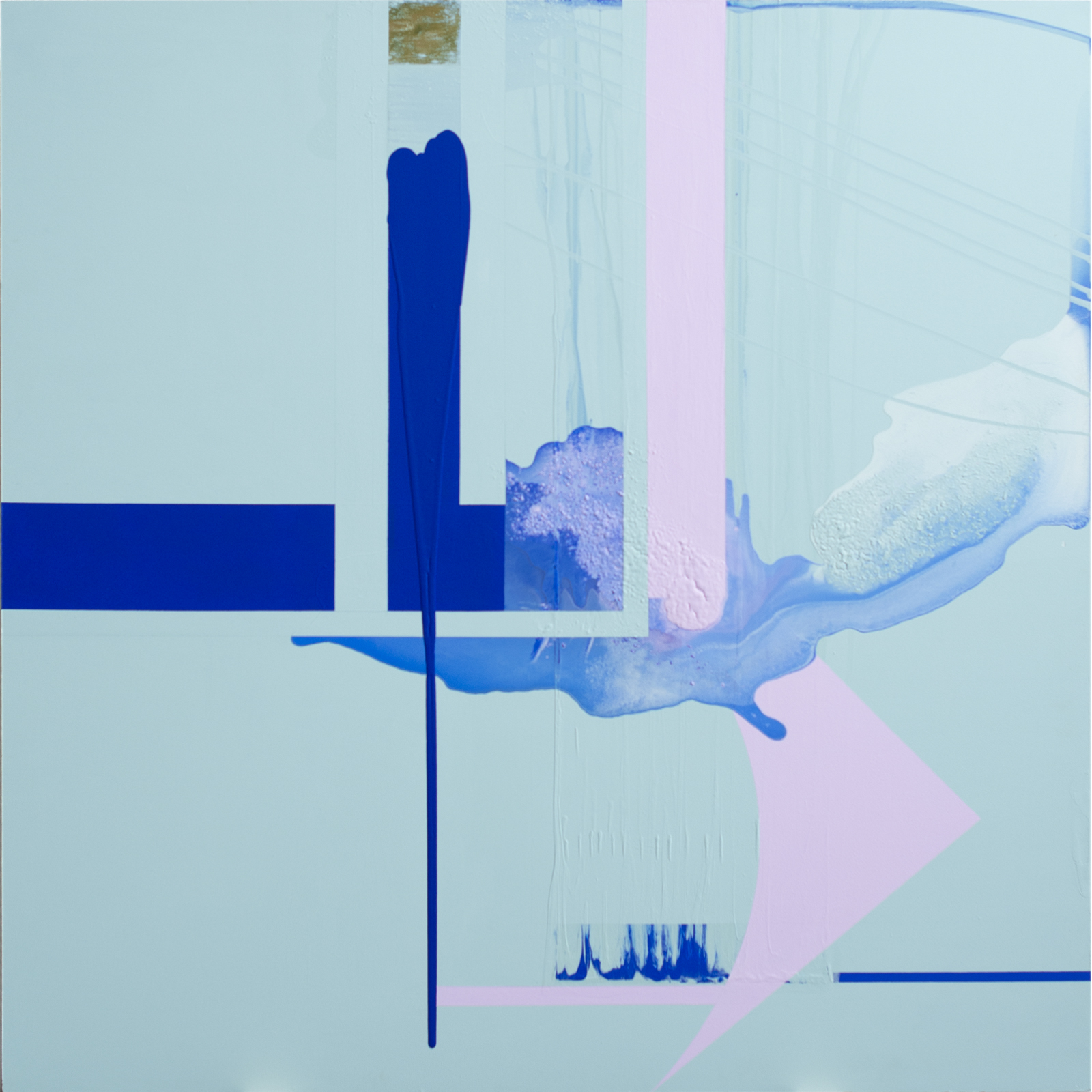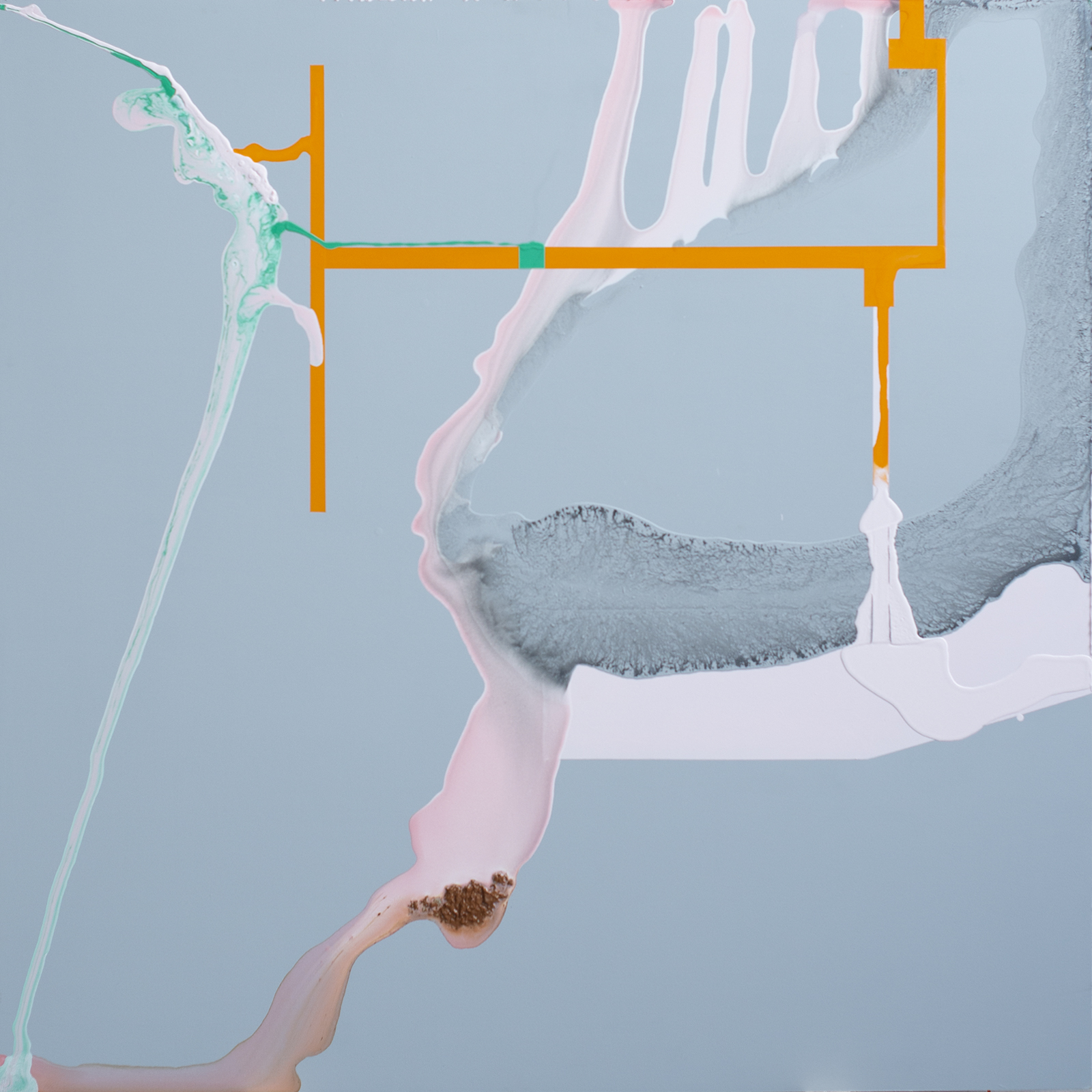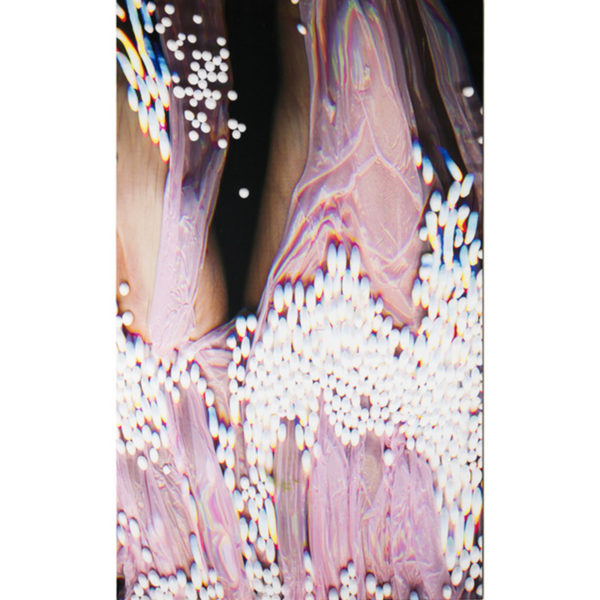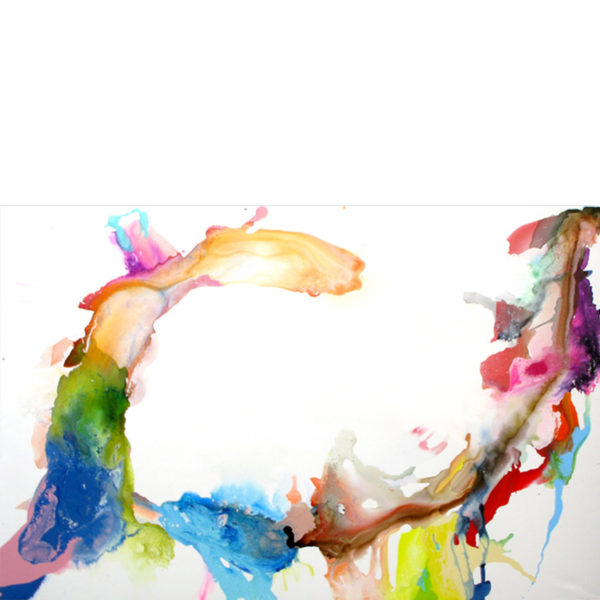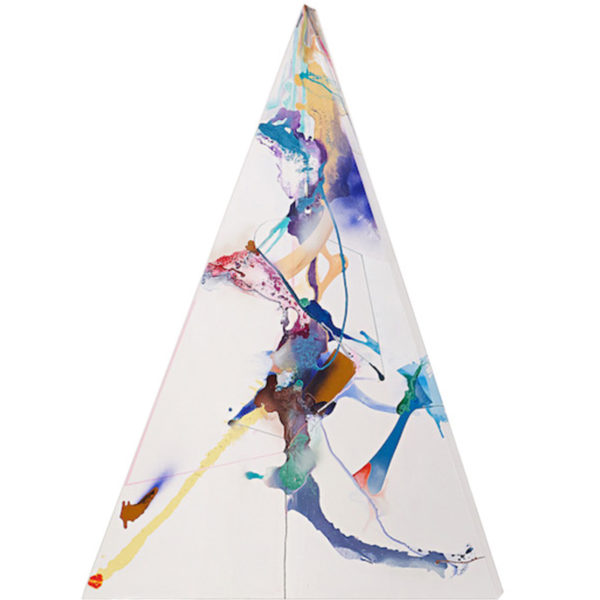Abigail Janjić
Abigail Janjić (1989, Stockholm) is a multidisciplinary artist living and working in Geneva.Her studies have led her from Geneva to Stockholm – officially in textile design – and then to Lausanne.
Janjić creates environments where the second dimension fills the physical space. Often changing form, the images she paints, scans, cuts out or prints appear as a constantly moving flux. In a coloured profusion of forms and materials, her artistic aesthetic borrows as much from the world of pop and advertising than from historical abstraction. Her works emerge from many different cross-pollinated processes, that she subjects to elements taken from reality, and which are then recomposed.
Lately, the artist has integrated dance into her work, taking her research even further, through questions relating to the ephemerality of the gesture or the intensity of the body. In April 2022, a sculpture project is planned on the Place Sturm in front of the dance pavilion as part of the heart@geneva project.
The artist exhibited in Stockholm (Galerie Larspalm, Supermarket Art Fair, Konstfack), Berlin (Espace ZQM) and in Geneva (Salle Crosnier – Palais de l’Athénée, Centre d’art contemporain, Body & Soul, Ferme de la Chapelle, BIG, àDuplex, TOPIC, Le Labo.)
Gabrielle Boder, Art Historian, Curator
2023 – Acrylic on wood – 150 x 150 cm
Spring Paintings untitled 3 and 4 are from of a series of six works completed between 2022 and 2023 in my studio at the Grütli Maison des arts. They are painted in acrylic on square wooden panels that are 8mm thick.
Like a body, realising that the space in which it finds itself is an opportunity for movement, the paintings can, depending on the way in which they are shown, adopt different positions.
All six surfaces of each work have been worked on. The 8mm thick panel sides are a transition zone between both main surfaces of the painting. The surface areas are covered in various forms: colours, smudges, smears, and drips, but also flat areas of colour overlaid with geometrical and curved shapes.
As the coloured surfaces assume their fixed final form, the different elements intermingle, endlessly pushing and pulling against one another.
Abigail Janjic

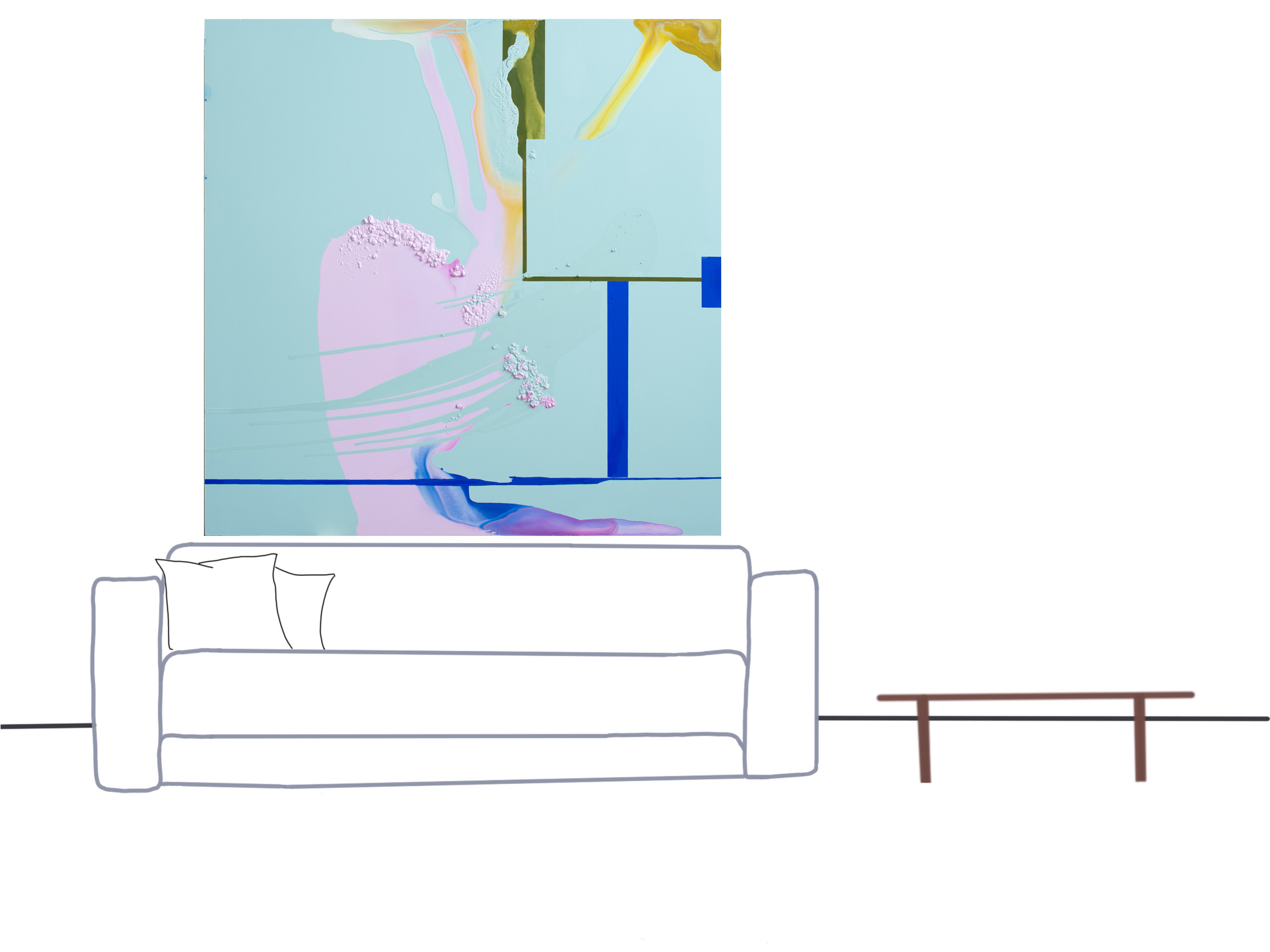

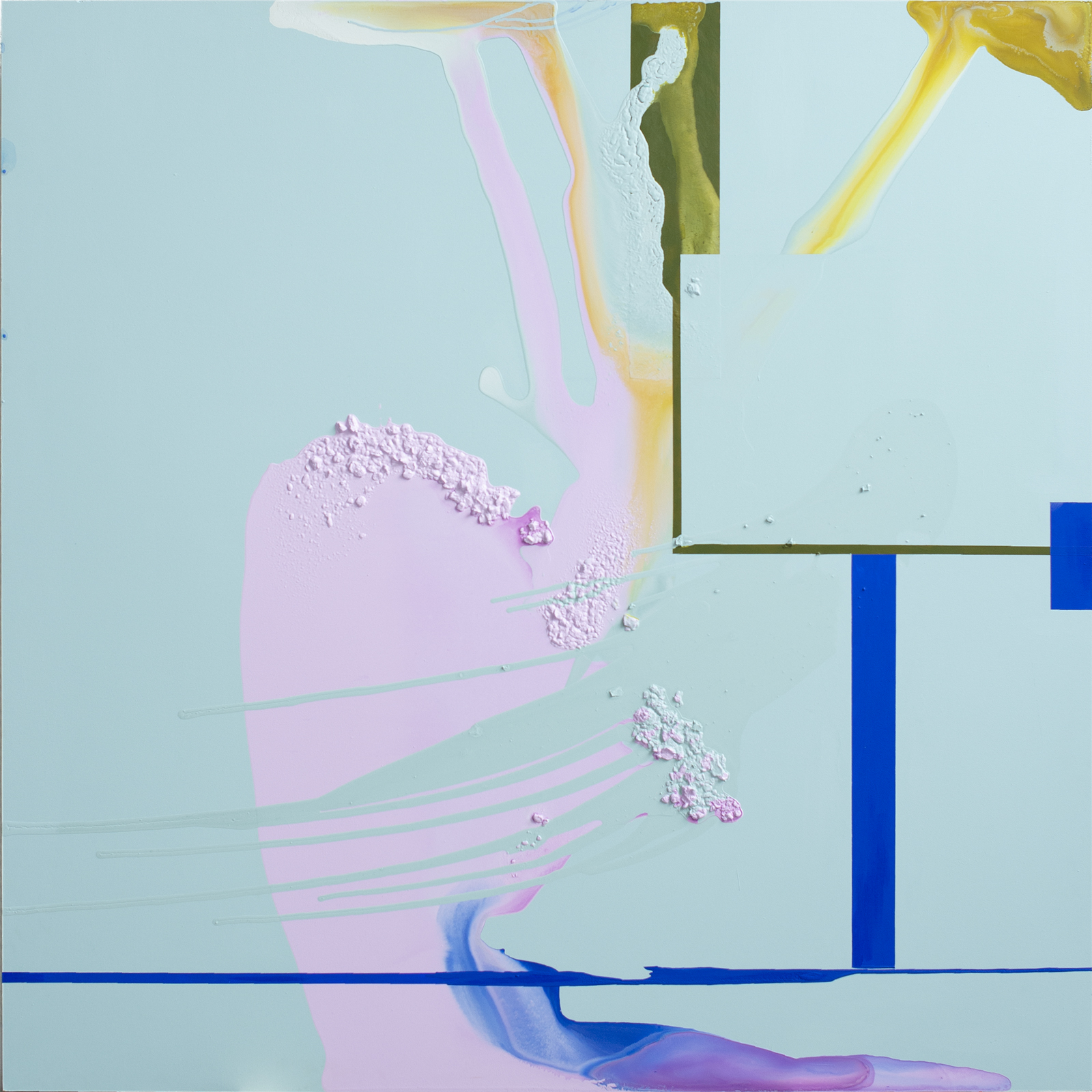
6200 .- acquisition form
2022 – Acrylic on wood – 150 x 150 cm
Spring Paintings untitled 3 and 4 are from of a series of six works completed between 2022 and 2023 in my studio at the Grütli Maison des arts. They are painted in acrylic on square wooden panels that are 8mm thick.
Like a body, realising that the space in which it finds itself is an opportunity for movement, the paintings can, depending on the way in which they are shown, adopt different positions.
All six surfaces of each work have been worked on. The 8mm thick panel sides are a transition zone between both main surfaces of the painting. The surface areas are covered in various forms: colours, smudges, smears, and drips, but also flat areas of colour overlaid with geometrical and curved shapes.
As the coloured surfaces assume their fixed final form, the different elements intermingle, endlessly pushing and pulling against one another.
Abigail Janjic



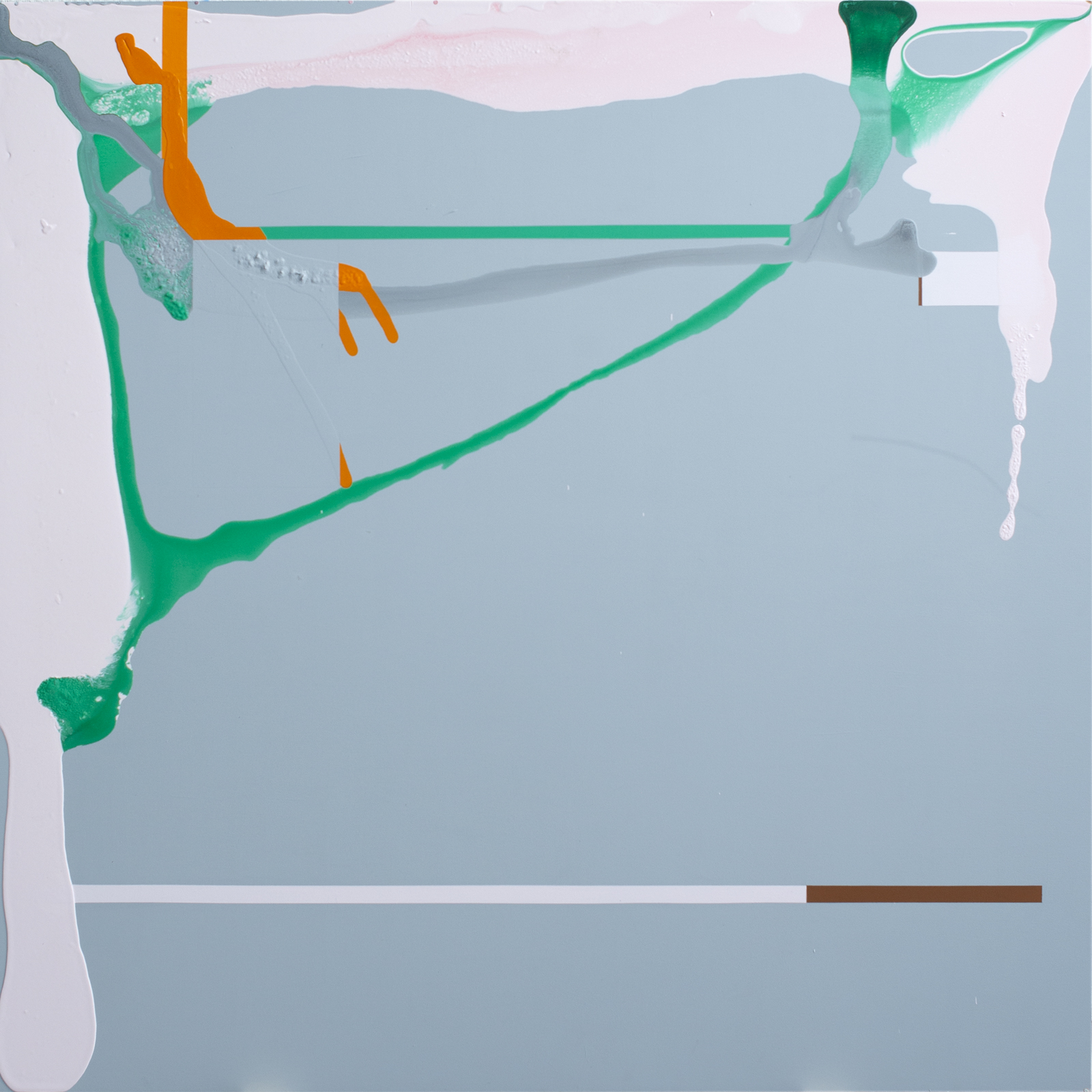
6200 .- acquisition form
2017 – scan printed on artificial silk and stretch on canvas – 135 x 80 cm
Abigail Janjić has been tracking and playing with images for over ten years. Whether she is painting, scanning, cutting up or printing, she challenges and confronts us with her collages, using this elusive, shapeshifting, pseudo-evidence that is the image. She create visuals directly on the scanner by manipulating different materials: diluted acrylic, colored oils, sands, plastic, wax, threads, variegated fabrics etc.

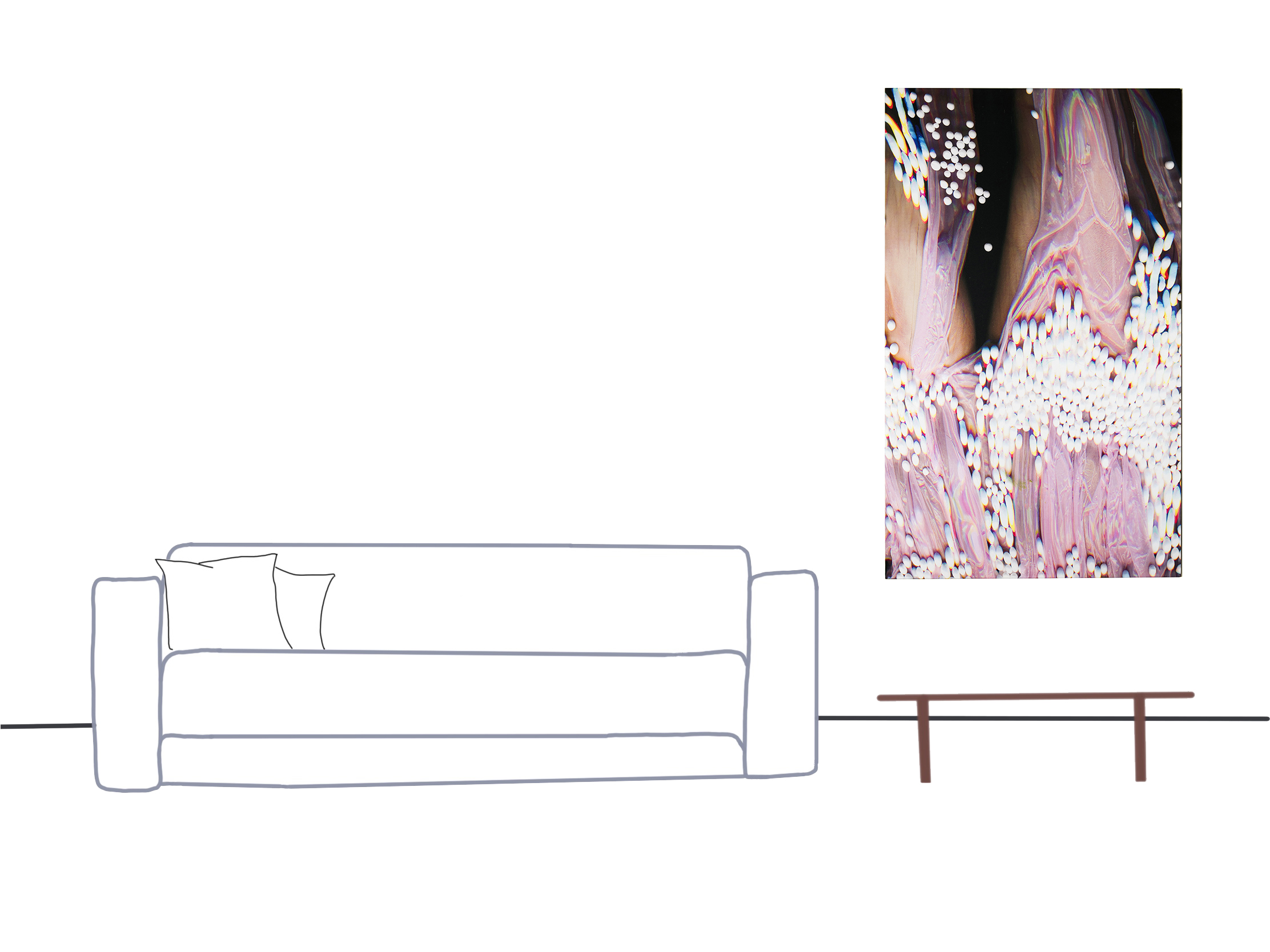

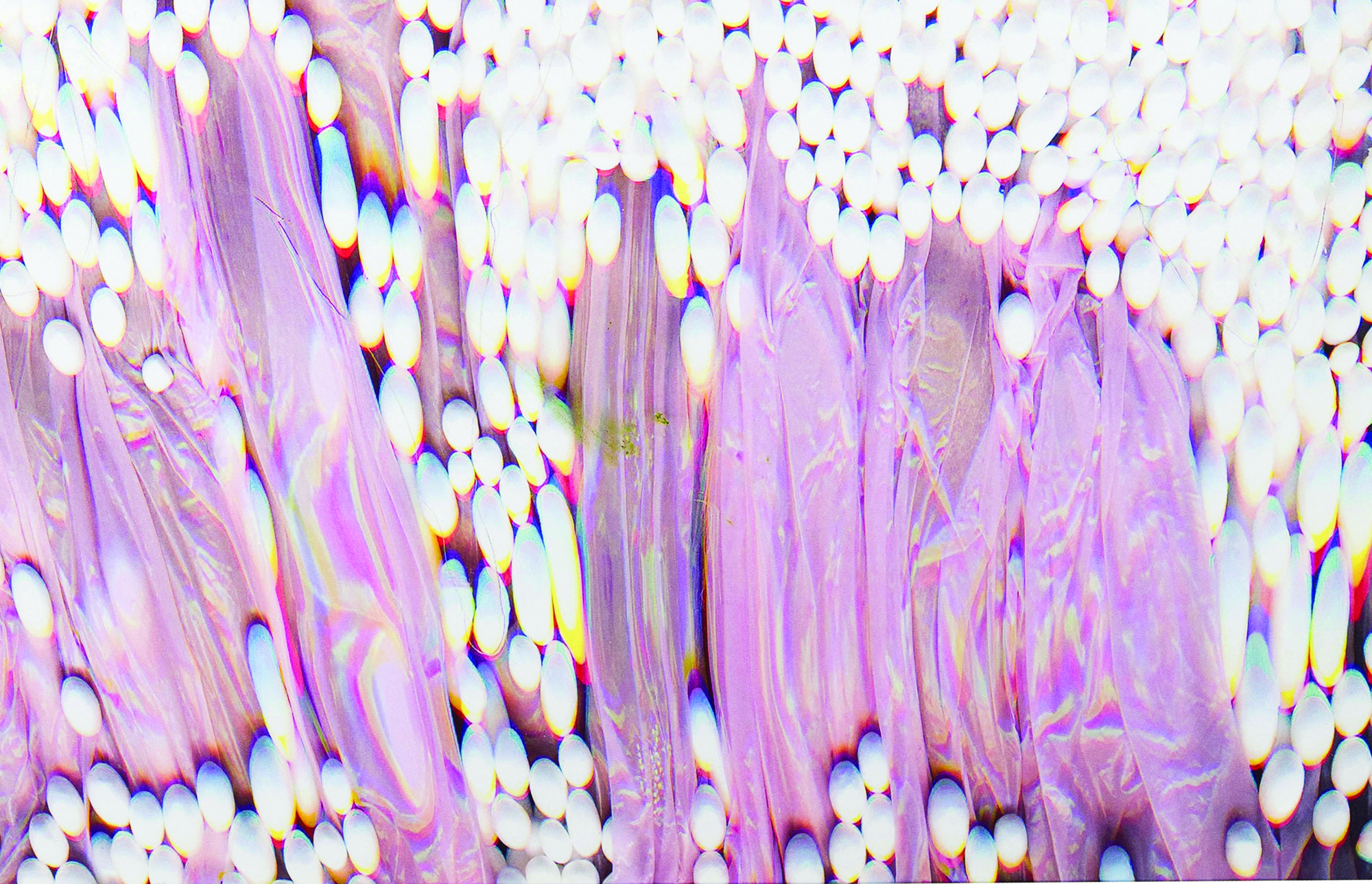
3000 .- acquisition form
2012 – acrylic, oil, acetone, nail polish, ink, ecoline, wood paint, cotton – 2 x 3 m



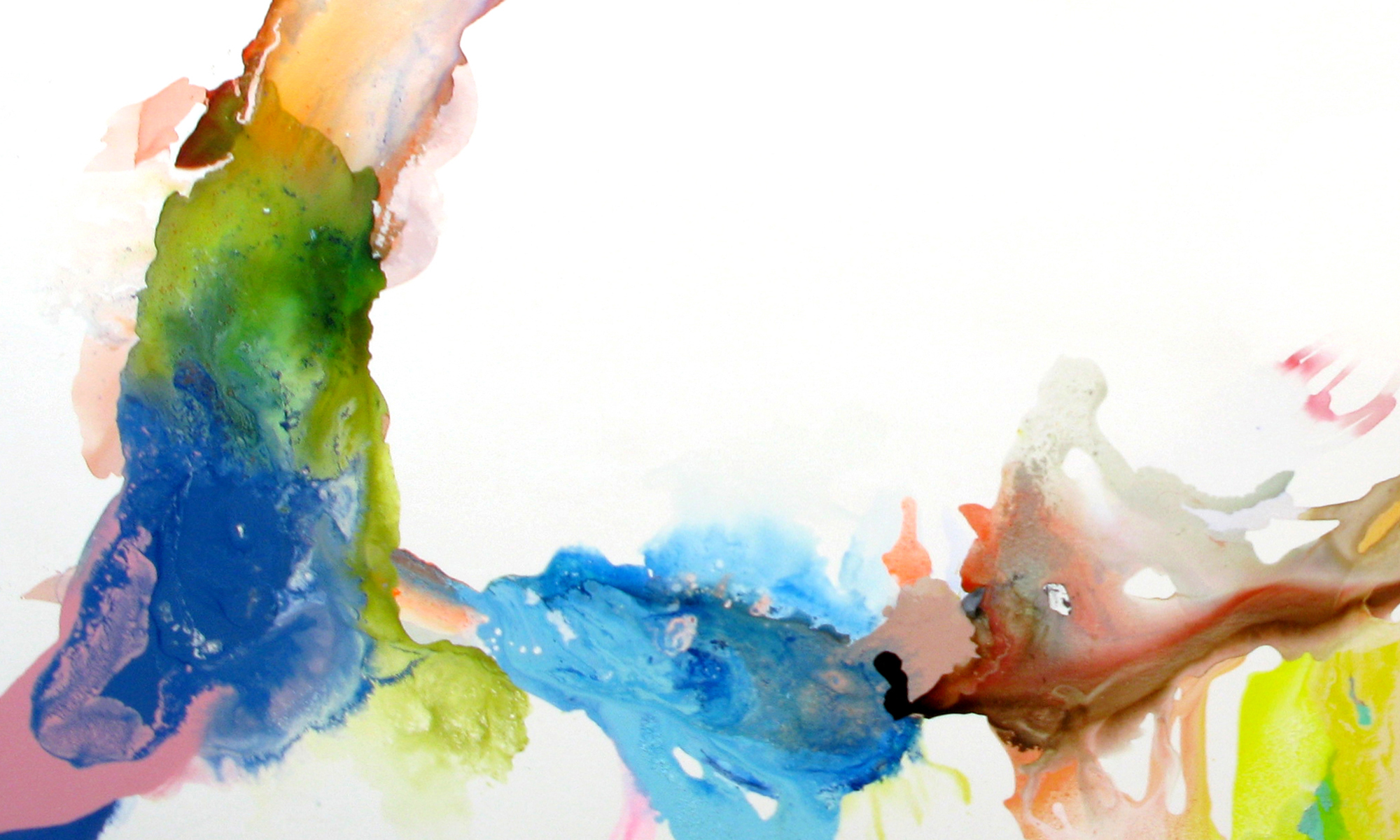
5000 .- acquisition form
2019 – acrylic, oil, ecoline and ink – 2 x 1,50 m
Piece from the Partes Extra Partes exhibition, Ferme de La Chapelle, Ville de Lancy
While screens invade our lives and images dematerialized in a virtual ‘cloud’, Simon Rimaz and Abigail Janjić propose to put material at the centre of their work. At the Ferme de la Chapelle they explore the physical and abstract reality of images, their ways of appearing and their dissemination. The Latin term partes extra partes leads us to a philosophical questioning of the structure of the world and those that live in it, on the opposition between fragmented nature and the disunity of things, and the concepts of harmony and cohesion. What ensues from this, notably, is the capacity for transformation of the material and the images, which then take on a perceptible and concrete form in the exhibition.
Gabrielle Boder, Art Historian, Curator

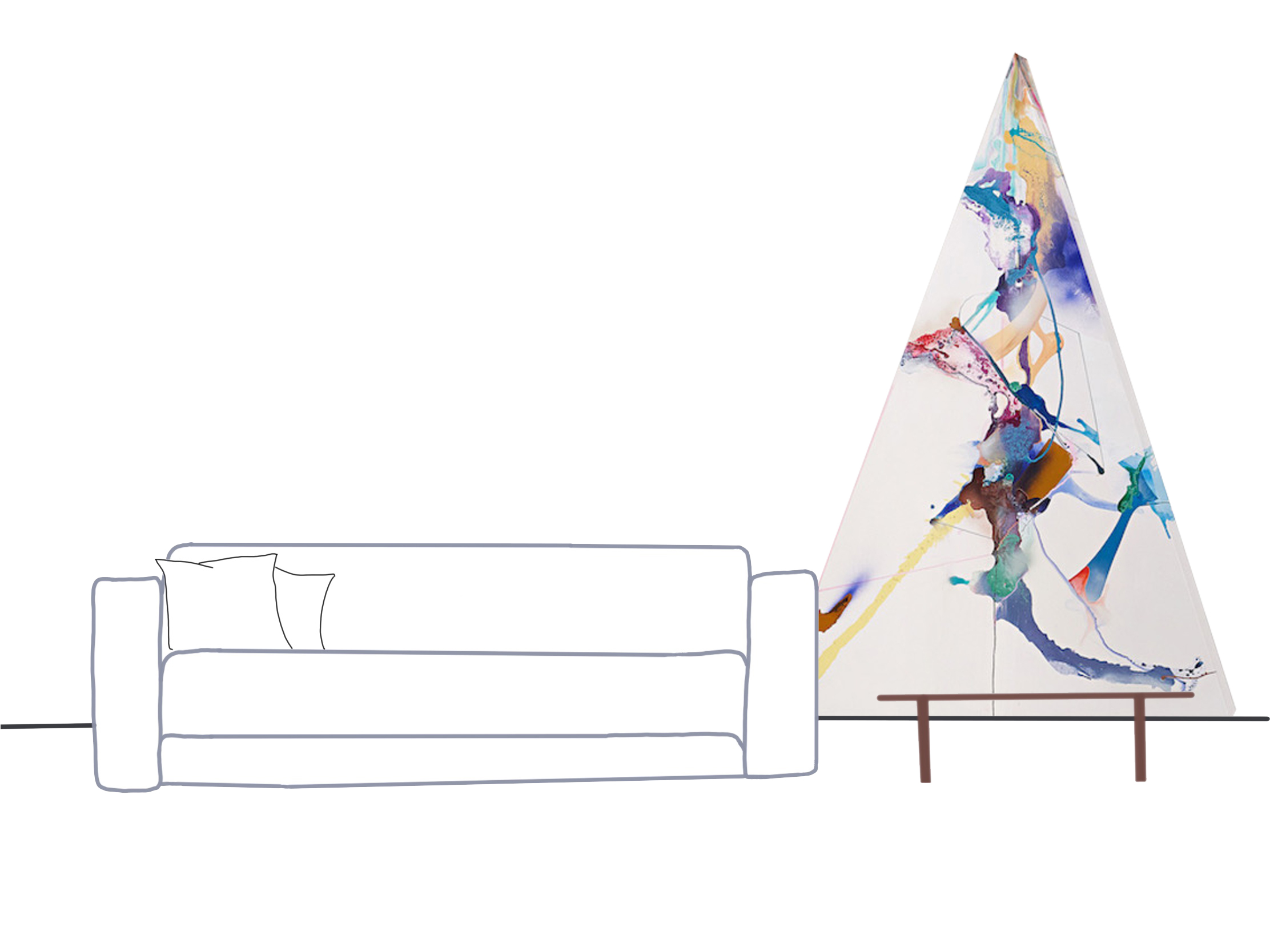
4000 .- acquisition form
